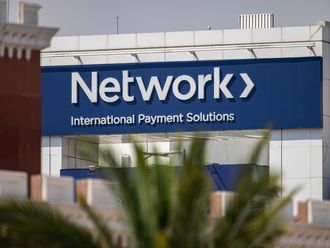The 2008 financial crisis exposed the complex inter-linkages between credit risk, market risk and liquidity, thereby escalating the need to establish a well-developed and inclusive financial infrastructure with effective risk mitigation mechanism. As a result, credit reporting and scoring emerged worldwide as a necessary form of underwriting and risk assessment practice which benefits both lenders and borrowers. It is expected to instil better credit culture and individual financial discipline with benefits ranging from better loan negotiating power to lower insurance premiums, better mortgage rates, and potential discounts. Although this concept is essentially old (with credit bureaus in Germany, Sweden, and the US existing for nearly a century), it gained significant traction in the post-2009 era as several countries introduced regulations guaranteeing that borrowers can inspect data in credit information registries, while improving the regulatory framework for sharing credit information.
Following this global trend, the Mena region also witnessed the development of the credit information industry, in the form of public credit registries (CR) or private credit bureaus (CB), during the first decade of this century. While the industry is still at a nascent stage, it is gradually bridging the gap with the rest of the world on the back of supportive government policies such as an upgrade of CRs (Lebanon, Oman, Tunisia) and establishment of CBs (Bahrain, Egypt, Jordan, Kuwait, Morocco, Saudi Arabia, and the UAE). Today, credit registries/bureaus exist in almost all regional economies including six countries (Libya, Oman, Qatar, Egypt, Morocco and Saudi Arabia) that have CBs operating alongside CRs. Further, most of the registries and bureaus have a positive data sharing system, which has improved the quality of loan portfolios in the region. These initiatives are also supported by the development of internal credit scoring models by almost half of the GCC and non-GCC banks to assess the risk of current and prospective clients.
Notably, GCC countries continue to lead the introduction of private credit bureaus, with Saudi Arabia and the UAE making notable progress, along with non-GCC members such as Egypt and Morocco. For instance, the UAE federal government company — Al Etihad Credit Bureau (AECB), recently launched individual credit scores for UAE citizens and residents, which is expected to empower the country’s banking customers to command better pricing of loans and enhance responsible lending. Almost all banks, in addition to 99 per cent of the active retail lending market and over 95 per cent of the active company lending market are now using data from the UAE’s new credit bureau, placing the nation on par with most developed markets. Similarly, the central bank of Morocco is in the process of instigating a second credit bureau. However, much remains to be done to expand the coverage and profundity of credit information, especially for regional SMEs.
During the last decade, introduction of credit registries/bureaus across the region has significantly improved the range of institutions (financials such as banks, microfinance institutions, etc. and non-financials such as retailers, and utility providers) offering credit information. However, the coverage of adult population by CRs and CBs in Mena remains weak at less than 10 per cent in 2014, compared to CB coverage ratios in other regions, such as the OECD (66.7 per cent), LATAM (37.5 per cent), and Europe & Central Asia (33.4 per cent). Amongst the regional contenders, GCC countries lead the pack with UAE (53.8 per cent), Saudi Arabia (48.3 per cent), and Kuwait (31 per cent) having the highest bureau coverage as of 2016, though still falling far behind high-income markets such as Germany, Italy, Sweden, the US and the UK which have 100 per cent coverage. Further, the provisions of value-added services (VAS) such as online access, credit scoring, portfolio monitoring, fraud detection and debt collection is poor in Mena in comparison to those being offered by sophisticated credit bureaus worldwide. For instance, only 38 per cent of all bureaus and registries (covering at least 5 per cent of the adult population) in the region offer credit scoring facilities, which helps lenders analyse the raw credit data, when compared to other regions such as the OECD and LATAM (80 per cent), and Europe & Central Asia (40 per cent).
Moreover, improved credit reporting system will also facilitate financing to micro, small and medium-size enterprises (MSMEs), which form the cornerstone of GCC’s economic diversification strategy but are still confronted with limited lending capacity of financial institutions due to lack of physical collateral, indecisive creditworthiness, and unavailability of risk-sharing instruments. As a result, the GCC’s SME lending penetration is very low as compared to the High-income and Middle-income countries, with the UAE providing only 4 per cent of SME loans; Saudi Arabia, Kuwait and Oman 2 per cent, Bahrain 1 per cent and Qatar only 0.5 per cent. Accordingly, an effective credit reporting system will allow MSMEs and new borrowers to build a credit history and to use this “reputational collateral” to access formal credit outside established lending relationships. Although some regional economies such as Egypt, Morocco and the UAE have taken special measures to promote the microfinance sector, much still needs to be done.
In conclusion, the Mena region has come a long way in developing credit reporting systems and the continuous effort to introduce advanced risk management methodologies remains a prime focus for all the countries. Clearly, regional institutions see value in credit reporting systems, but are still not primed to effectively use these tools due to challenges related to diverse levels of technology, resistance to change, and indiscipline in data collection. Overall, the system requires reform at the initiative of stakeholders to expand the coverage and depth of credit information, especially for the regional SMEs.
— Shailesh Dash, Founder and CEO, Al Masah Capital










